The next PSC-CUNY contract will be historic as it is the first to register the impact of the COVID-19 pandemic on our lives and work. The union will continue to address the areas of need that preexisted the pandemic and build on the advances of previous negotiations. But this contract must also address needs that the pandemic exacerbated or exposed for PSC members and for our students.
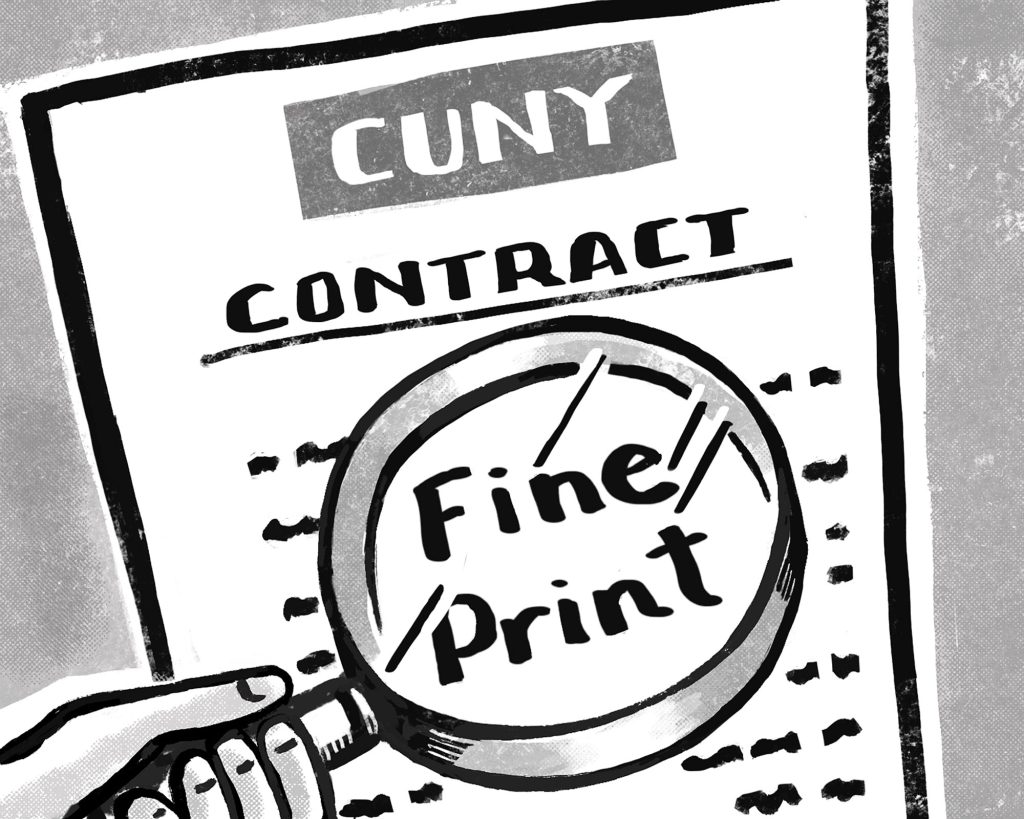
(Credit: All illustrations by Jud Guitteau)
Pandemic-era inflation has eroded the real value of our salaries, many of which were made uncompetitive by years of underinvestment in the university. For too many, work at CUNY before the pandemic was unsecured and precarious; these conditions are even more clearly unacceptable today. To enhance the quality of education at CUNY, the next contract must fairly compensate and support CUNY’s workforce, expand full-time hiring and combat contingency, ensure academic integrity across modalities, and foster a safe and sustainable learning environment. To respond to enrollment declines, facilities degradation, and the attrition of faculty and staff, CUNY must rebuild itself as the university where New Yorkers want to study and academic professionals want to work. Only by organizing together, with our many titles and ranks united by this vision for CUNY and our next contract, can we make these goals a reality. Recent contract struggles in higher education, including our own, have lifted the sights of faculty and staff across the country and inspired us to build on one another’s gains.
From the onset of the pandemic, PSC members have responded consistently to the challenges.
- Health and safety have been of paramount concern to employees returning to classrooms, labs, and offices. Hundreds of union members have pressed this struggle forward. Contract negotiations are an opportunity for the university to commit to reporting on key metrics to ensure that our campus communities stay healthy and flourish. Here we must amplify the union’s budget campaign for new resources to overcome chronic disinvestment in CUNY facilities.
- Budgetary uncertainty accompanying the pandemic made CUNY workers on contingent appointments more vulnerable. Thousands were initially non-reappointed and although many eventually got their jobs back, the insecurity of at-will appointments persists. The contract must increase access to full-time appointments and improve job security for those in part-time positions.
- When work went remote almost overnight, our members reinvented how they did their jobs. Under duress, faculty learned to teach online and developed courses for online or hybrid delivery. This work went largely uncompensated, and the contract must address the expectation – and the desire –to serve our students in multiple modalities, while ensuring the conditions necessary for students to succeed and thrive.
- Professional staff and library faculty transitioned to working remotely and continued to meet the needs of students and colleagues. The contract must evolve to reflect the fact that much of our work can be performed partially remotely while continuing to serve our students.
- The pandemic revealed the extent to which institutional racism undermines the safety and success of many New Yorkers and prevents all of us from prospering. A faculty that more closely reflects the communities we serve will better support our students and strengthen our academic programs. Only 38% of CUNY full-time faculty identify as Black/African American, Hispanic/Latino, Asian/Pacific Islander, Indigenous American, or multi-racial, while nearly 80% of students identify as one of these groups. Collective bargaining is an arena for the union to secure management’s commitment to diversifying the faculty. Our campuses must be healthy, safe, bias-free spaces in which every student and worker can thrive.
Adjunct employees contend with many adverse effects of contingency: insufficient wages, uncertain employment, barriers to career advancement, lack of access to benefits. The PSC negotiated major raises for teaching adjuncts in the last contract. As a result, it is more expensive for CUNY to rely on adjunct labor, and this has led to full-time hires – more than 500 lines this year alone. The next contract must build upon those achievements to meet the needs of all contingent employees, for whom the impact of contingency goes well beyond wages. Critically, we will continue to move the university toward full-time appointments, thousands more of which are needed to reverse the impact of decades of disinvestment. New full-time appointments must include professorial hires; the research that professors perform is vital to the classroom and the public good. Fostering research and scholarship has been a long-standing aim of the PSC, and the union will seek to enhance support in these areas.
Our history as “The People’s University” has made CUNY widely renowned for offering access and academic quality to New Yorkers from all walks of life. Decades of neglect and disinvestment have threatened to undermine that legacy and compromise the quality of the education CUNY offers. The talented members of the PSC can no longer do more with less; for our own benefit and the benefit of our students and their families, our contract negotiations will prioritize raises, justice, and community.
A. Salary
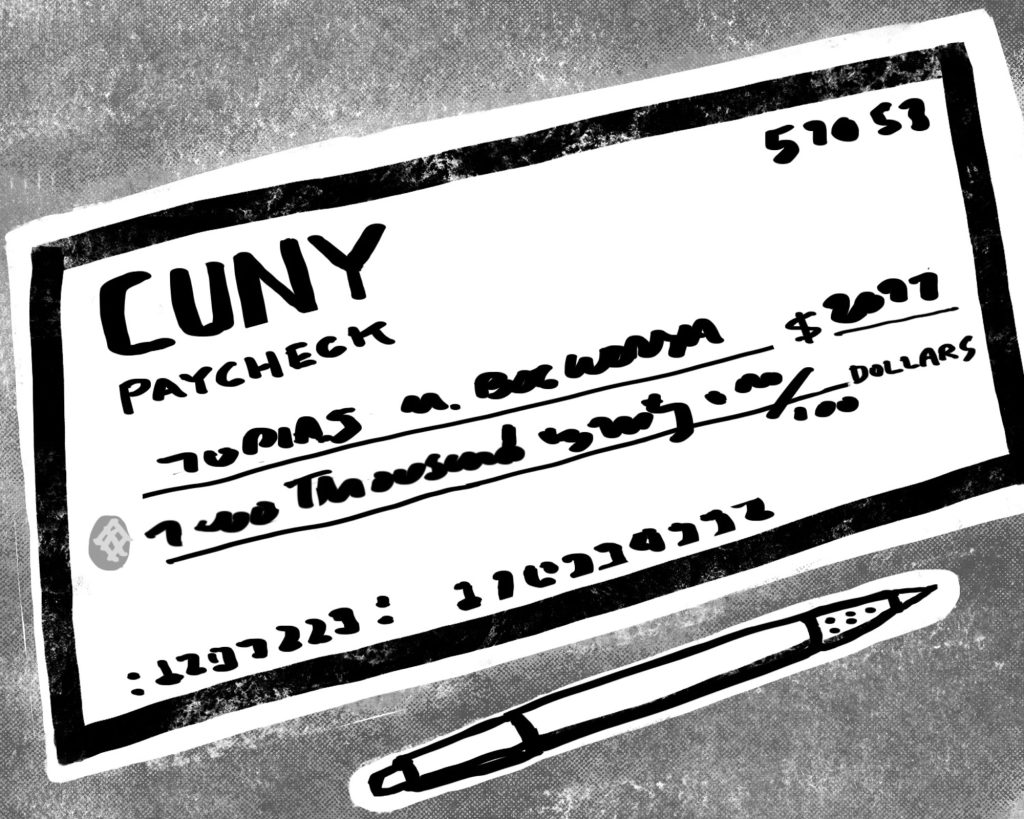
PSC members need real raises. Salaries have eroded in the face of long-term disinvestment in CUNY and are uncompetitive with peer institutions. The real value of the salaries of all members of the bargaining unit has declined during this period of rapid inflation, while the cost of living in the New York metropolitan area has increased rapidly.
- All members of the bargaining unit shall receive across-the-board salary increases that exceed inflation and address the rising cost of living. (Article 24)
- Members in the College Laboratory Technician titles shall receive equity increases to approach the salaries of other full-time professional staff, Assistants to HEO, Continuing Education Teachers, and CLIP and CUNY Start Instructors shall receive equity increases in addition to across-the-board salary increases. Continuing Education Teachers appointed to the Math Start and English Start programs shall be subject to the terms and conditions of Appendix D that apply to CUNY Start Instructors. (Article 24 and Appendix D)
- Equity and pay parity for teaching adjuncts with full-time faculty shall be achieved through equal pay for the equal work that teaching adjuncts do. (Article 24)
- Promotions and reclassifications shall be accompanied by an automatic increase of at least one step on the new salary schedule. (Articles 22 and 24)
- Additional increases shall be added to the top step of all full-time titles to address salary compression. For full-time employees, the five-year step shall be converted to a three-year step. For hourly employees whose salary schedules are covered in Article 24, movement from the penultimate and antepenultimate steps will take place after one year. (Article 24)
- Improvements shall be made to the provisions for HEO reclassification, discretionary salary differentials, and salary differentials for advanced degrees. (Articles 22 and 24)
- Salaries in the Research Professor and Research Associate series shall be determined by salary schedules rather than ranges. (Article 24)
B. Benefits
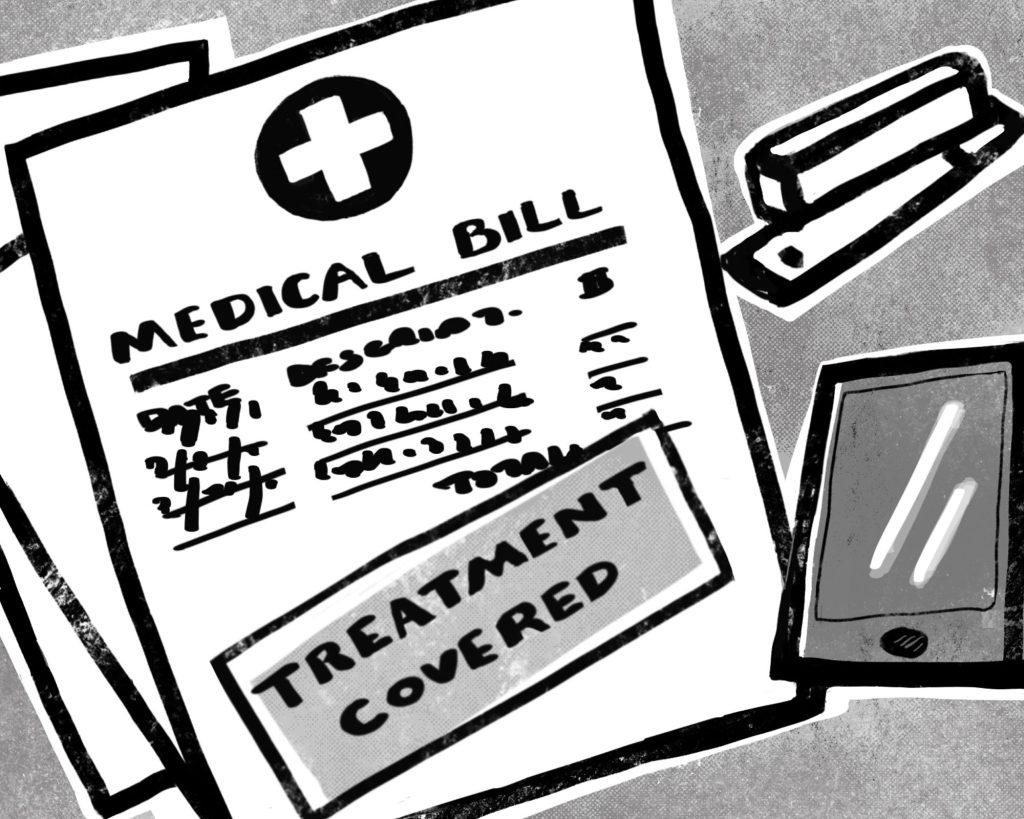
- The annual per capita contribution to the PSC-CUNY Welfare Fund shall be increased for active and retired employees in order to continue improving the benefits the Welfare Fund provides. (Article 26)
- Eligibility for tuition waivers shall be extended to non-teaching adjuncts, CLIP and CUNY Start Instructors, and adjunct CLTs, and to children of members of the instructional staff. The eligibility requirement for tuition waivers for teaching adjuncts shall be reduced, and may be established through service CUNY-wide. (Article 29)
- All reappointed teaching and non-teaching adjuncts, including adjunct CLTs, shall accrue and carry over sick leave. Annual leave and sick leave provisions for CLIP and CUNY Start instructors shall be enhanced. (Article 14)
- Eligibility for health insurance shall be expanded for teaching and nonteaching adjuncts. (Appendix J)
- Teaching and non-teaching adjuncts who retire into the TRS pension system shall receive retiree health insurance in the same manner as full-time retirees. (Article 27 and Appendix J)
- Service performed by Graduate Assistants and doctoral students employed in other PSC-represented titles shall count toward their contractual benefits in subsequent CUNY appointments.
- A labor-management committee shall be established to resolve problems related to the tracking and implementation of retirement benefits, including pensions, and shall meet twice a semester. (Article 27)
C. Work-Life Balance and Professional Respect
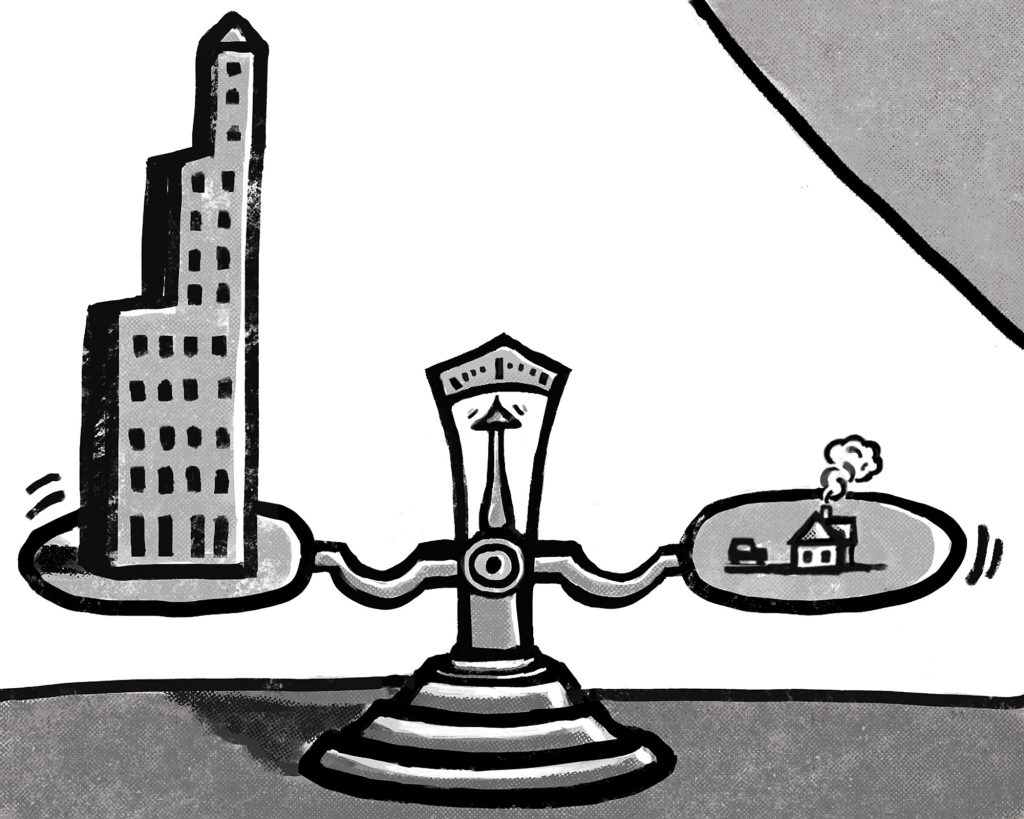
- All professional staff and library faculty shall, with limited exceptions where job responsibilities preclude it, have the option to perform their work remotely at least 40% of the time.
- A procedure shall be established for employees and supervisors to arrange a mutually agreed upon flexible workday and workweek schedule.
- Teaching adjuncts and Graduate Assistants shall be compensated when a class they are assigned to teach is cancelled or reassigned. Cancellation or reassignment shall not constitute a break in service. Members of the non-classroom instructional staff shall receive timely notice of schedule changes. (Article 10)
- PSC and CUNY will work jointly to combat harassment and bullying in the physical and virtual workplace (cyberbullying). A university-wide labor-management committee on professional respect shall be established.
- A fair system shall be created to compensate employees for late paychecks.
- Teaching adjuncts and Graduate Assistants shall be entitled to the same jumbo-class provision as their college’s full-time faculty for calculation of compensation and teaching support.
- Essential workers in the PSC bargaining unit who are called in to work when a campus is closed shall be entitled to additional compensation.
D. Educational Technology
Educational technology (ET) has become an essential component of the full spectrum of teaching modalities, including but not limited to in-person, hybrid mixtures of in-person and online, online synchronous, HyFlex (in-person, asynchronous, and synchronous online at once), and online asynchronous modalities. Distance learning (DL) shall be understood to include hybrid mixtures of in-person and online, online synchronous, HyFlex (in-person, asynchronous, and synchronous online at once) and online asynchronous modalities.
- All credit-bearing courses offered by the University that employ distance learning technology, including courses that are fully online, hybrid courses, or courses that blend online and face-to-face teaching modalities, shall be designed and developed by faculty and professional staff, and taught by faculty, in titles included under Article 1.
- Courses developed for online or DL are the intellectual property of the creator, unless explicitly designated to be CUNY’s or another party’s intellectual property by CUNY’s Intellectual Property Policy. In those cases when a faculty member develops a course using distance learning modalities in a “work-for-hire” capacity (compensated in salary or time, or both) under CUNY policy, the University shall provide, before the course is developed, written notice to the instructor, separate from the employment contract, clearly setting forth the specific terms governing the ownership of and rights to the intellectual property created.
- All faculty who develop a course for online delivery shall have the right of first refusal to teach and revise the course they develop.
- Within the terms set forth by governance bodies, academic departments shall have the right to decide the teaching modality of their courses, and participation in any DL shall be at the discretion of individual faculty members.
- Instructional staff must have meaningful participation in decisions about digital platforms and learning management systems prior to their selection for use by departments, colleges, and the university.
- Faculty shall receive adequate compensation (in salary or time, or both) for the professional development, course development and additional instructional time that is required by the use of ET and DL across the teaching modality spectrum, and be provided with adequate technological support services while teaching their courses. Such time shall not be charged against office hours.
- At the conclusion of the 2022 HyFlex pilot, HyFlex shall be considered a teaching modality subject to the approval process of appropriate governance bodies. Faculty teaching HyFlex shall be compensated at twice the time or pay rate of regular classes (online, hybrid or in-person). All HyFlex courses shall be assigned appropriate synchronous technological and academic support.
- Educational technology shall not be used by management for surveillance of job performance or time for faculty or staff, including but not limited to the tracking of hours worked, or tracking of work progress.
- Insofar as professional staff are required to provide support services for online education and DL, such work shall be appropriate to the title, included in job descriptions and workload calculations, and considered in reclassification requests.
E. Job Security
- The number of annual reappointments required before granting a Certificate of Continual Administrative Service for Higher Education Officers shall be reduced. (Article 13)
- The pilot program on multiyear appointments for teaching adjuncts shall be made permanent and modified to expand the eligibility criteria and improve consistency and fairness in implementation. (Appendix E)
- Teaching adjuncts shall be eligible for a Certificate of Continuous Employment (CCE).
- Eligibility for multi-year appointments shall be extended to nonteaching adjuncts and adjunct CLTs, and an appropriate review process shall be established. (Appendix E)
- CLIP and CUNY Start Instructors shall be eligible for a Certificate of Continuous Employment, in accordance with Article 12. A procedure shall be established to facilitate movement of employees in these titles between worksites if low enrollments jeopardize reappointment. (Article 12)
- The university shall authorize the appointment of 600 new dedicated full-time Lecturer positions for colleges to allocate to academic departments for the conversion of their qualified teaching adjuncts. The university shall authorize the appointment of 50 new Instructor lines dedicated to CUNY doctoral candidates.
- Research Professors and Research Associates shall be eligible for a Certificate of Continuous Employment. (Article 11) Research Professors whose appointments are explicitly contingent on external funding shall receive a 6-month notice, or pay in lieu thereof, if the university moves to terminate them due to loss of external funding.
- SEEK Directors and College Discovery Directors shall be added to the PSC bargaining unit. (Article 1)
- There shall be a university-wide cap on the number of full-time contingent positions, including Research Professors. (Article 11)
F. Workload and Professional Advancement

- College Laboratory Technicians shall have increased promotional opportunities. (Article 22)
- CUNY shall provide additional compensation and recognition of seniority in the Lecturer titles, including but not limited to multi-step advancement in salary schedule to accompany conferral of the CCE. Doctoral Lecturers and teaching adjuncts with doctoral degrees shall be eligible for professional development workshops to support research and scholarship for those seeking Assistant Professor positions. (Article 11)
- Annual teaching load for Educational Opportunity Center faculty shall be reduced from 30 to 24 contact hours annually.
- CUNY shall provide additional support to department chairs. (Article 25)
- The university shall authorize 50 Assistant Professor lines dedicated to current Doctoral Lecturers at CUNY. Doctoral Lecturers with four or more years of continuous full-time service in their title shall have the option to expedite their tenure clock. (Article 9)
- Improvements shall be made to the review and revision of job descriptions for the nonteaching instructional staff.
G. Health & Safety
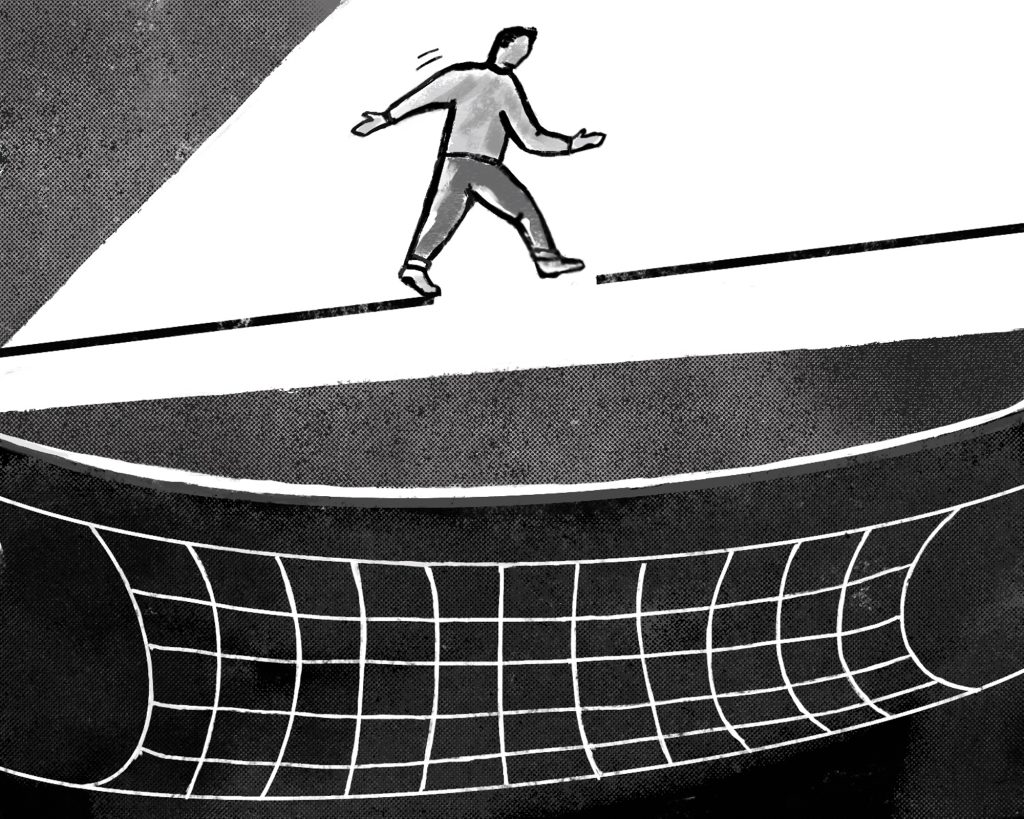
- Article 39.1 shall be amended to add the following requirements: “to furnish to each of its employees a place of employment free of physical or environmental conditions that interfere with teaching and learning or with the ability of employees to perform their assigned duties.” This article shall be further amended to indicate that an alleged violation of the provision may be grieved up to and including Step 3 of the formal grievance procedure.
- Colleges shall be required to report publicly each semester in detail on air quality, water safety and availability, and facilities maintenance. (Article 39)
- The labor-management committee on Health and Safety shall meet at least twice per semester. In addition, campus-based labor-management committees on Health and Safety shall be established. (Article 39)
- Environmental Health and Safety Directors shall be included in the PSC bargaining unit. (Article 1)
H. Support for the Academic Community
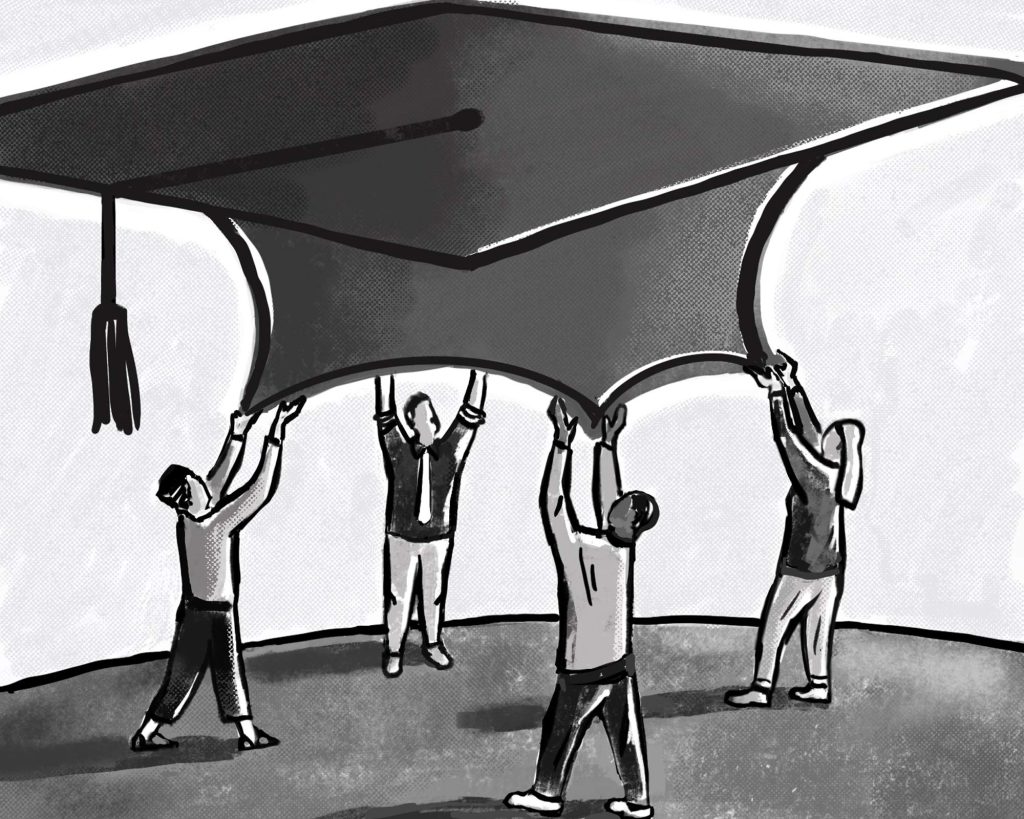
- CUNY shall substantially increase funding for faculty reassigned time for unsponsored research at the senior and community colleges. (Article 6)
- Annual contributions to the HEO-CLT Professional Development Fund and to the Adjunct-CET Professional Development Fund shall be increased. (Article 33 and Appendix B)
- Funding for the PSC-CUNY Research Award program shall be increased. (Article 25)
- Library faculty shall have the same amount of annual leave as teaching faculty. (Articles 14 and 25)
- Fellowship leave decisions shall not be based on budgetary considerations. (Article 25)
- Teaching adjuncts serving in multi-year appointments and nonteaching instructional staff shall be eligible for paid leave for research and professional development, which shall not constitute a break in service. (Article 14)
- There shall be a uniform and enhanced system of funding and NYSHIP provision for all CUNY doctoral students, including but not limited to those who are currently employed as Graduate Teaching Fellows and Science Fellows, and those who are recipients of tuition-only support. (Article 11)
- Improvements shall be made to various compensation terms that apply to bargaining unit members at the Hunter College Campus Schools.
- CUNY shall encourage all search committees to refer candidates to the Professional Staff Congress as a resource as soon as they are offered a position.
I. Racial Justice and Support for the Common Good

- In recognition of the pervasive effects of institutional racism in higher education and CUNY’s responsibility as the nation’s leading public urban university system, CUNY shall establish a fund to support departmental efforts toward racial diversity in recruiting and retaining faculty.
- CUNY shall provide reassigned time for faculty who provide exceptional service for mentoring, advising and outreach to first-generation and/or traditionally underrepresented students. Procedures for administering the reassigned time shall be established by college governance bodies. (Article 6)
- In recognition of the climate crisis, New York City’s goals to achieve net-zero carbon emissions, and CUNY’s role in contributing to the City’s emissions, CUNY shall reduce carbon emissions, meet with key stakeholders, and report annually on progress.
- In recognition of the devastating environmental, social, and financial impact of single-use plastics, 36 million pounds of which enter the City’s waste stream annually, CUNY shall provide food service and vending machine offerings that are free of single-use plastics.
- In recognition of the extensive research showing that smaller class size improves student retention and learning outcomes, CUNY shall reduce the average size of undergraduate classes over the duration of this contract and report annually on progress.
J. Enforcement of the Collective Bargaining Agreement
- The university shall increase reassigned time to PSC to implement the collective bargaining agreement. Teaching adjuncts on multi-year appointments shall be eligible for reassigned time to implement the collective bargaining agreement. (Article 6)
- HEOs shall remain on payroll during disciplinary proceedings. (Article 21)
- Each College President shall meet with the PSC Chapter Chairperson and a reasonable number of other Officers of the PSC, including cross-campus representation, twice each semester. (Article 2)
- CUNY shall provide the PSC with information about new retirees, reporting on the names and college appointment status of adjuncts who receive multi-year appointments, and adjuncts who receive health insurance through their CUNY appointment. (Article 5)
- A bargaining sub-committee shall be established to address out-of-date job titles and practices.
The Professional Staff Congress reserves the right to amend, withdraw, or add to these demands. Approved by the Delegate Assembly on February 2, 2023.
The road ahead
The contract has expired, and the union’s delegates have ratified the bargaining demands. The PSC has told CUNY loud and clear that it is time to negotiate.
There will be lots of ways to get involved in the contract campaign, including attending a bargaining session with CUNY, organizing on your campus locally or joining union-wide rallies around the city.
Stay informed on the contract campaign, by visiting psc-cuny.org and reading communications from your chapter leadership.
Published: March 8, 2023 | Last Modified: March 9, 2023

